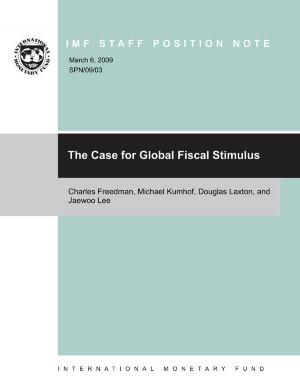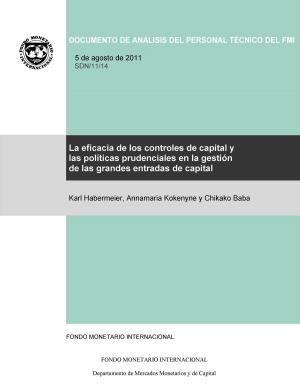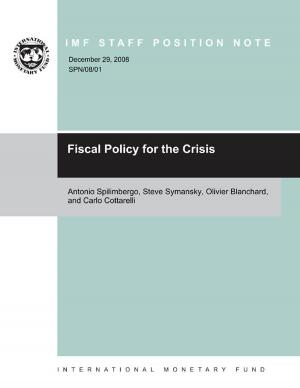Foreign Direct Investment in China: Some Lessons for Other Countries
Business & Finance, Economics, Money & Monetary Policy, International Economics, Nonfiction, Social & Cultural Studies, Political Science, Politics, Economic Policy| Author: | Harm Mr. Zebregs, Wanda Ms. Tseng | ISBN: | 9781455235667 |
| Publisher: | INTERNATIONAL MONETARY FUND | Publication: | February 1, 2002 |
| Imprint: | INTERNATIONAL MONETARY FUND | Language: | English |
| Author: | Harm Mr. Zebregs, Wanda Ms. Tseng |
| ISBN: | 9781455235667 |
| Publisher: | INTERNATIONAL MONETARY FUND |
| Publication: | February 1, 2002 |
| Imprint: | INTERNATIONAL MONETARY FUND |
| Language: | English |
China's increasing openness to foreign direct investment (FDI) has contributed importantly to its exceptional growth performance. This paper examines China's experience with FDI and identifies some lessons for other countries. Most of the factors explaining China's success have also been important in attracting FDI to other countries: market size, labor costs, quality of infrastructure, and government policies. FDI has contributed to higher investment and productivity growth, and has created jobs and a dynamic export sector. China's success, however, did not come without some pitfalls: an increasingly complex tax incentive system and growing regional income disparities. Accession to the WTO should broaden China's "opening up" policies and continue FDI's contributions to China's economy in the future.
China's increasing openness to foreign direct investment (FDI) has contributed importantly to its exceptional growth performance. This paper examines China's experience with FDI and identifies some lessons for other countries. Most of the factors explaining China's success have also been important in attracting FDI to other countries: market size, labor costs, quality of infrastructure, and government policies. FDI has contributed to higher investment and productivity growth, and has created jobs and a dynamic export sector. China's success, however, did not come without some pitfalls: an increasingly complex tax incentive system and growing regional income disparities. Accession to the WTO should broaden China's "opening up" policies and continue FDI's contributions to China's economy in the future.















